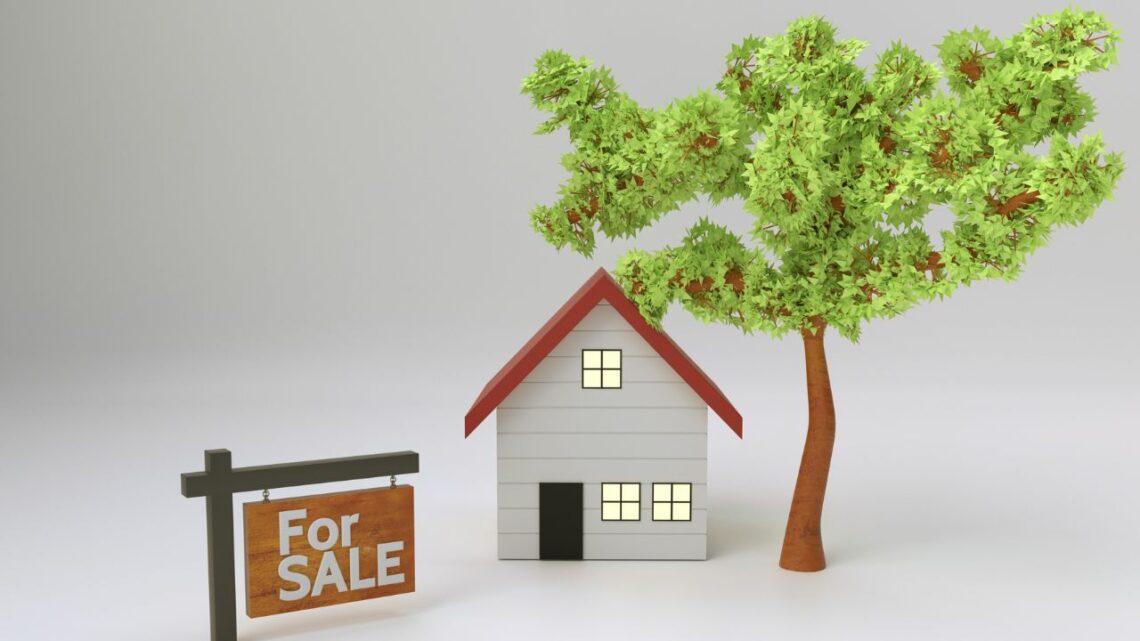Lori Ballen, the owner of this website, benefits from purchases made through her affiliate links.
Selling a house can be a daunting task, especially when it comes to deciding what to fix and what not to fix. In this blog post, we will explore a fresh perspective on the top ten tips for what NOT to fix when selling a house, focusing on cost-effective ways to create a positive impression on potential buyers without spending a fortune on repairs and renovations.

Short Summary
- Consult a local real estate agent for expert advice and assistance.
- Focus on cost-effective curb appeal enhancements such as landscaping and painting to maximize potential home value.
- Address major electrical, plumbing, and HVAC issues before listing your property to ensure safety for buyers.
Consulting a Local Real Estate Agent
One of the smartest moves you can make is to consult a local real estate agent before listing your property. These seasoned professionals understand the local market and can provide valuable insights into which repairs and enhancements are required to appeal to potential buyers and maximize your home’s selling potential. By working with an experienced real estate agent, you’ll create a tailored list of items to address and those to leave untouched, enabling you to focus on the most critical aspects of the home-selling process.
Selecting the right real estate agent involves considering factors such as licensing, credentials, experience in the local market, and feedback from previous clients. It’s essential to choose an agent with a proven track record of successfully navigating the local real estate landscape, as they will be best equipped to offer guidance on the do’s and don’ts of selling your house.
While alternatives to engaging a real estate agent exist, such as selling through a For Sale by Owner (FSBO) process or directly to an iBuyer like Opendoor, these options may not provide the same expertise and support as working with a local agent. Ultimately, the decision to enlist the help of a real estate agent can save you time, effort, and potentially costly mistakes during the home-selling process.
Curb Appeal Enhancements vs. Major Repairs
When it comes to selling a house, first impressions are crucial. Focusing on cost-effective curb appeal improvements, such as landscaping and painting, can significantly impact potential buyers without breaking the bank.
While it’s essential to address major repairs, like a malfunctioning HVAC system or foundation damage, investing in expensive renovations may not yield the desired return on investment. Instead, prioritize easy-to-implement enhancements that will attract prospective buyers and boost your property’s overall appeal.
Landscaping Tips
Simple landscaping modifications can work wonders in increasing your property’s curb appeal. Start by mowing the lawn, trimming overgrown bushes, and removing any dead plants or debris. A well-manicured lawn can create a positive first impression on potential buyers and make your house stand out from the competition.
Another way to enhance your property’s appearance is by incorporating colorful flowers and fresh mulch. Adding pops of color and texture to your garden can make it more visually appealing and inviting to prospective buyers. If you live in an area prone to drought, consider xeriscaping, a landscaping technique that utilizes drought-tolerant plants to conserve water and reduce maintenance requirements.
Hardscaping features, such as patios, walkways, and retaining walls, can also add value to your property. These elements not only improve the aesthetics of your outdoor space but also create functional areas for relaxation and entertainment.
Investing in simple landscaping changes can significantly boost your property’s curb appeal and increase its attractiveness to potential buyers.
Painting Recommendations
A fresh coat of paint can make a world of difference in the overall appearance of your house. When choosing paint colors, selecting neutral shades that appeal to a broad range of potential buyers is essential. While trendy colors might be tempting, they may not suit everyone’s tastes and could deter some buyers.
Neutral colors like beige, light gray, and white are versatile and can easily complement various interior design styles. By opting for these hues, prospective buyers can envision themselves living in the space and making it their own, ultimately increasing the likelihood of a successful sale.
According to the National Association of Realtors, painting the interior of a home yields a 10 out of 10 “Joy Score,” indicating an extremely high level of satisfaction with the renovation. By investing in a fresh coat of neutral paint, you’re enhancing the visual appeal of your house and adding value that can positively impact the sales price.
Cosmetic Flaws vs. Significant Issues
As a seller, it’s crucial to understand the difference between minor cosmetic flaws that buyers can overlook and significant issues that may impact the sale of your house. Minor imperfections, such as a few cracked tiles or minor scratches in hardwood floors, can be easily fixed by the buyer and won’t necessarily be deal-breakers.
On the other hand, significant issues, like a faulty furnace or severe water damage, should be addressed before listing your property. Failing to resolve these problems can deter potential buyers and ultimately lower your property’s value.
By focusing on fixing major issues and leaving minor cosmetic flaws to the buyer’s discretion, you’re more likely to attract a wider range of interested parties and sell your house quickly.
Outdated Fixtures and Appliances
Outdated fixtures, faucets, cabinet hardware, and appliances may not be visually appealing, but as long as they function correctly, there’s no need to replace them before selling your house. Many buyers prefer to customize these elements to suit their personal style and don’t expect the seller to invest in costly upgrades.
When it comes to appliances, it’s essential to weigh the benefits of replacing them against the potential return on investment. If your devices are older but still functional, consider leaving them as-is, allowing buyers to replace them according to their preferences. This approach can save you money while still presenting your home in a favorable light.
However, if your appliances exhibit signs of severe wear or poor functioning, it may be worth considering a replacement with used or standard new appliances. Ultimately, the goal is to strike a balance between showcasing a well-maintained home and allowing buyers the freedom to personalize the space.
Electrical, Plumbing, and HVAC Considerations
When selling a house, distinguishing between major and minor electrical, plumbing, and HVAC issues is essential. While minor electrical problems, such as loose outlet plugs or a light switch that goes to nothing, can be left untouched, significant problems like exposed wires or an outdated electrical service panel should be addressed prior to listing your property.
Similarly, if your home has major plumbing or HVAC concerns, you should prioritize resolving these issues before putting your house on the market. Potential buyers will likely request a home inspection, and any significant problems discovered during this process could negatively impact the sale.
By addressing major electrical, plumbing, and HVAC issues, you’re not only ensuring a safer home for prospective buyers but also increasing the likelihood of a smooth and successful sale. Remember that while minor issues can be overlooked, it’s crucial to tackle any significant concerns that could be potential deal-breakers.
Driveway and Walkway Cracks
Small driveway and walkway cracks may not be the most visually appealing, but they pose no safety risk and are unlikely to deter potential buyers from considering your property. In fact, most buyers understand that minor cracks are a natural result of normal wear and tear and won’t expect perfection in this area.
Instead of spending time and money fixing minor driveway and walkway cracks, focus on more impactful curb appeal enhancements, such as landscaping and painting, which can create a stronger first impression on prospective buyers. You can successfully present your home in the best light by prioritizing cost-effective improvements without breaking the bank.
Removable Items and Personal Preferences
When preparing your home for sale, it’s important to remember that removable items like curtains, rods, and furniture are a matter of personal preference and can be easily changed by the buyer after purchase. As such, there’s no need to invest in replacing these items before listing your property.
Instead, consider donating any unwanted removable items to a charitable organization or discard them to create a clean and uncluttered space for potential buyers to envision their personal touches. By showcasing a neutral and adaptable environment, you can increase the likelihood of attracting interested buyers and ultimately selling your house.
Partial Room Upgrades
When it comes to home renovations, partial room upgrades can be more of a hindrance than a help. Buyers may have difficulty visualizing the ultimate outcome of partially completed projects, leading to confusion and potentially deterring them from considering your property.
Partial updates, such as replacing countertops while maintaining existing cabinets, can create an unappealing contrast and may not add value to your home during sales. Instead, it’s better to complete a full renovation or leave rooms as-is, allowing buyers to customize the space according to their preferences.
By avoiding partial room upgrades, you’re not only presenting a more cohesive and visually appealing home but also giving potential buyers the freedom to create their dream space. This approach can ultimately lead to a quicker sale and a greater return on investment.
Summary
In conclusion, when selling a house, it’s crucial to focus on cost-effective improvements that create a positive first impression on potential buyers without spending a fortune on unnecessary repairs and renovations. By consulting a local real estate agent, prioritizing curb appeal enhancements, and addressing major issues while leaving minor cosmetic flaws and personal preferences to the buyer, you can successfully showcase your property in the best light possible and maximize your chances of a smooth and successful sale.
Frequently Asked Questions
What makes a house unsellable?
For many potential buyers, a home’s location, condition and layout are of utmost importance. Unsellable homes are typically ones that have major maintenance issues, lack curb appeal or are located in undesirable areas.
These factors can make it difficult to sell a home quickly and for a good price.
What to fix up when selling a house?
To prepare your home for sale, it’s essential to take care of any plumbing, electrical, roofing, heating/cooling, safety and cosmetic issues. These repairs can help make sure potential buyers view your home favorably and that the sale goes through quickly.





